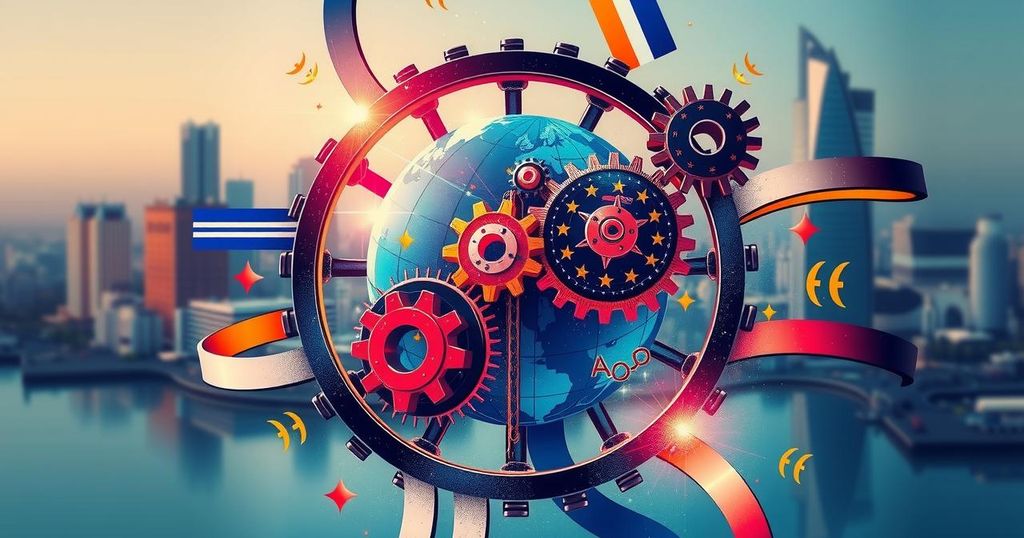Ursula von der Leyen, President of the European Commission, advocated for a renewed partnership between India and the EU, emphasizing the need to finalize a free trade agreement (FTA) this year. She announced plans for a security and defense partnership to tackle common threats, highlighting the importance of cooperation in the face of rising geopolitical challenges. The dialogue also addressed enhancing technological collaboration and economic security.
European Commission President Ursula von der Leyen emphasized the necessity for India and the European Union to redefine their partnership amid current geopolitical challenges. During her visit to India, accompanied by a delegation of the EU’s College of Commissioners, she urged both parties to prioritize finalizing a free trade agreement (FTA) within this year, underscoring its potential significance in the global economic landscape and security framework.
Von der Leyen articulated the shared threats faced by India and the EU, such as cross-border terrorism and maritime security issues, advocating for a strategic security and defense partnership. This partnership aims to address common challenges while enhancing collaborative efforts, particularly around recent maritime security initiatives, which represent the growing interconnectedness of both regions.
Addressing Prime Minister Modi, Von der Leyen highlighted the historic significance of 2025 as a pivotal year and acknowledged the complexities involved in negotiating the FTA. She expressed her commitment to advancing discussions, which have been ongoing since 2007 and faced multiple disruptions.
She pointed out that the proposed FTA would be the largest of its kind globally, highlighting its importance for mutual prosperity. The dialogue around economic cooperation also integrates plans to enhance market access and eliminate trade barriers, laying a foundation for cooperation in technology sectors including semiconductors and clean energy.
Von der Leyen drew attention to the Ukraine crisis, asserting that peace and stability are crucially interlinked for Europe and India. She expressed that the international community is keenly observing how nations respond to violations of sovereignty, emphasizing the need for deterrents against aggression and fostering a just global order.
In concluding her remarks, von der Leyen called for a renewed commitment to collective security and economic collaboration for both regions. This partnership, she believes, can cultivate a strategic advantage in a competitive global economy and fulfill shared ambitions in technological innovation and security.
In summary, Ursula von der Leyen has articulated a visionary perspective for reimagining the partnership between India and the European Union. Her calls for finalizing the free trade agreement, exploring a defense partnership, and enhancing economic collaboration underscore the importance of mutual support in responding to global challenges. This relationship is poised to yield significant benefits in both economic and geopolitical realms, positioning both entities strategically for the future.
Original Source: www.hindustantimes.com






